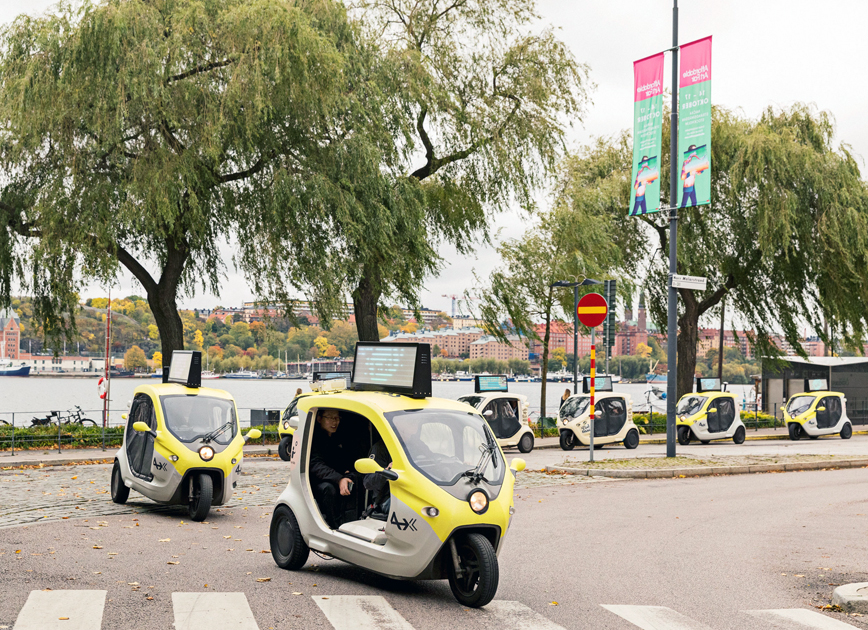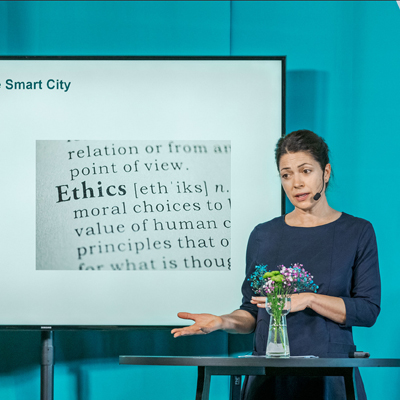Ethics are important when working with smart cities

One key to achieve Stockholm’s vision of being the world’s smartest city by 2040, is the use of digitalisation, sensors and artificial intelligence (AI), to analyse huge volumes of data that are generated by the inhabitants. But to gain the confidence of people for the surveys that are being done, you need to identify and manage the ethical questions that arise when people come face to face with new technology.

Barbro Fröding is a Docent of Philosophy at KTH who is investigating ethical aspects of smart cities. Part of this work is being done in various different projects within the parameters of the Stockholm Senseable Lab, a collaborative project between KTH and MIT. Fröding explains that there is more to the Stockholm vision than purely the development and implementation of technology in the city. Above all, it is about bring about benefits for the people who live here, in the form of the best environment, highest quality of life, and the best enterprise climate.
“However, if we are to come close to this type of goal, we need to involve the people who live in the city and get them to engage with this. This is being done via dialogue and co-creation, in a way that means that the inhabitants become more than simply a kind of data suppliers,” says Fröding.
A five point check list
In the first part of her ethics project, she interviewed project managers who work with different smart city projects where she asked questions concerning what ethical situations they had encountered and what kind of support they need. Then she compiled the information that emerged in these interviews into a report with a five point check list of what could be worth considering with this type of project: it is not enough simply to follow the law, more support is needed when it comes to ethics, inspiration can be sought from research ethics, open data and reasoning shared, and encourage dialogue and co-creation.
“In other words, you need to do more than simply follow what the law prescribes when it comes to ethics and to gain the confidence of the citizens in order to get them to share their data. In addition to this, it is important to work with ethical issues such as transparency, justice, trust, and integrity,” says Fröding.
But she also believes that the people who are working with the different projects in the city need more than that. Such as knowing how these ethical issues can be translated into reality.
“Even if they know what is contained in the check list, this does not necessarily mean they know what this means in their own projects. Plus, it can be difficult to envisage how your project can be perceived by other outsiders,” says Fröding.
Putting ethical concepts in their own context

Together with the members working in a number of new projects within the Stockholm Senseable Lab, she has looked at how you can try to contextualise these ethical concepts by incorporating them into the targets that have been set.
“Take social sustainability, for instance. We have discussed this from the perspective of ‘how can your project contribute to social sustainability, or how can it undermine social sustainability?’. This made it more concrete and enabled the project managers to get started with applying these sometimes somewhat abstract ethical principles,” says Fröding.
Important to take concerns seriously
The fact that the Stockholm smart city initiative is a good cause, in that it should lead to both green and social sustainability, it also paves the way for many city residents to consider wanting to become involved and willing to share data, she believes. This, in combination with the propensity of Swedes in general to have a high degree of trust in public authorities, bodes well for the projects.
“But from this good starting point, it is clearly still important to take people’s concerns seriously, by catering to these ethical issues and maintaining open communication with citizens, via the project websites, for example,” says Fröding.
She is now moving onto the second part of the ethics project where, for example, she will contribute with content concerning ethical questions for the project websites and support both new and existing projects. In parallel, she is writing scientific articles. A first article, Watch out, Cities are Data Engines, that she has written together with one of the MIT researchers at the Stockholm Senseable Lab, will shortly be published in AI and Society – The Journal of Human Centred Systems.
Håkan Soold
